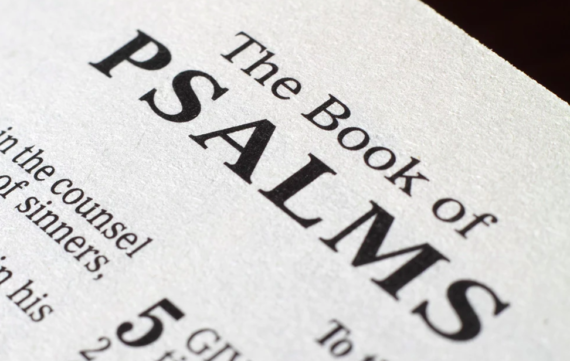This psalm is not the basis for a comprehensive doctrine of sin. This psalm is a help toward an understanding of sin. But we must not use this, or any other poetic passage, in a way that contradicts passages that give straightforward teaching on the subject.
This psalm has traditionally been ascribed to the occasion of David’s sin with Bathsheba. We have no idea who added the heading that connects it with that event. The heading may not be accurate. There is no harm in reading this psalm in light of that event, provided it is not read as though it is limited to that occasion or focused only on that sin.
Confession
One prominent feature of the psalm is confession. It is a clear confession; no excuses are offered.






“For I know my transgressions, and my sin is ever before me. 4Against you, you only, have I sinned and done what is evil in your sight, so that you may be justified in your words and blameless in your judgment” (3-4).
This is a clear confession, but it is not a specific confession. There may be two good reasons for that. First, God knows what the author has done and the extent to which he is aware of it, so there is no need for the specifics to be named here. Second, the usefulness of the psalm to others would be marred if it were to contain confession of sins that many worshippers could not join in confessing. If the heading is correct, and this grew from David’s sin with Bathsheba and against Uriah, those specifics would have marred the usefulness of the psalm for many of us.
Controversial aspects: There are two controversial aspects to the confession that is here.
Many people object to the statement “against you only have I sinned” (4). The indication of sinfulness from birth also raises a lot of questions (5). In both cases we are making the mistake of refusing to the author a right we always extend to ourselves. We use hyperbole to express strongly felt revulsion. Why can that not be the case here?
Certainly, our wrongs do affect others. But the sinfulness of our wrongs exists only because God exists and has made humans in his image.
Certainly, the writer is not trying to blame his mother. He is not trying to escape responsibility for his sinful actions. Instead, he is trying to express the depth of the corruption of his heart and mind. This is a realization sadly lacking in many today.
We should face the magnitude of our sinfulness. We should realize that God is offended by our sin. We should realize that we lack the inner strength to reform ourselves. It is only these realizations that enable us to make sense of the appeals in this psalm.
Appeals: There are three appeals in this psalm.
We notice the appeal for forgiveness. It is first expressed in terms drawn from daily life.
“Have mercy on me, O God, according to your steadfast love; according to your abundant mercy blot out my transgressions. 2Wash me thoroughly from my iniquity, and cleanse me from my sin! (1-2)
Later the same appeal is expressed in terms drawn from the ceremonial washings of their sacrificial system. “Purge me with hyssop, and I shall be clean; wash me, and I shall be whiter than snow” (7).
Finally, the appeal for forgiveness is made in terms of personal relationship. “Hide your face from my sins, and blot out all my iniquities” (9).
There is also an appeal for inward renewal. There really is no point in seeking forgiveness only to go on behaving the same way. But, without God’s help, that is exactly what will happen. We need inner cleansing and renewal. It is not enough to merely escape the external consequences of our sin. We need inward renewal.
“Create in me a clean heart, O God, and renew a right spirit within me. 11 Cast me not away from your presence, and take not your Holy Spirit from me” (10-11).
There is also an appeal for enablement to glorify. Even to be granted forgiveness and the ability to not sin again is not enough. What purpose are we to serve? We need not only forgiveness and inner renewal. We must seek enablement to serve our purpose — to glorify God and to call others to glorify him.
Restore to me the joy of your salvation, and uphold me with a willing spirit. 13Then I will teach transgressors your ways, and sinners will return to you. 14Deliver me from bloodguiltiness, O God, O God of my salvation, and my tongue will sing aloud of your righteousness. 15O Lord, open my lips, and my mouth will declare your praise” (12-15).
We need mercy not only for what we have done, but for what we are. We also need purpose and enablement to fulfil our purpose. These come from God, or they do not come at all. These come from his mercy, not from our supposed goodness (1).
We may not have committed adultery and murder as David did. But we are deeply flawed in our thinking as well as in our actions.
This psalm does not present us with a complete doctrine of sin and salvation. But it does present us with a useful model for approaching God in humility, knowing that we cannot reform ourselves but must instead appeal to his merciful goodness.

